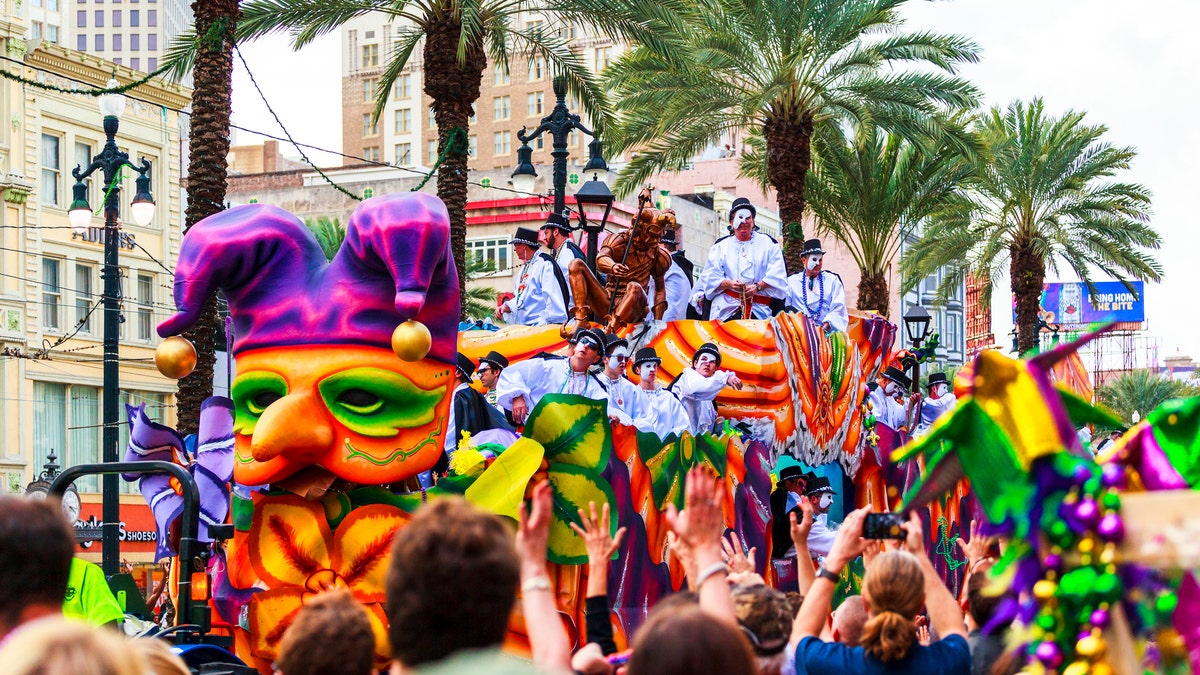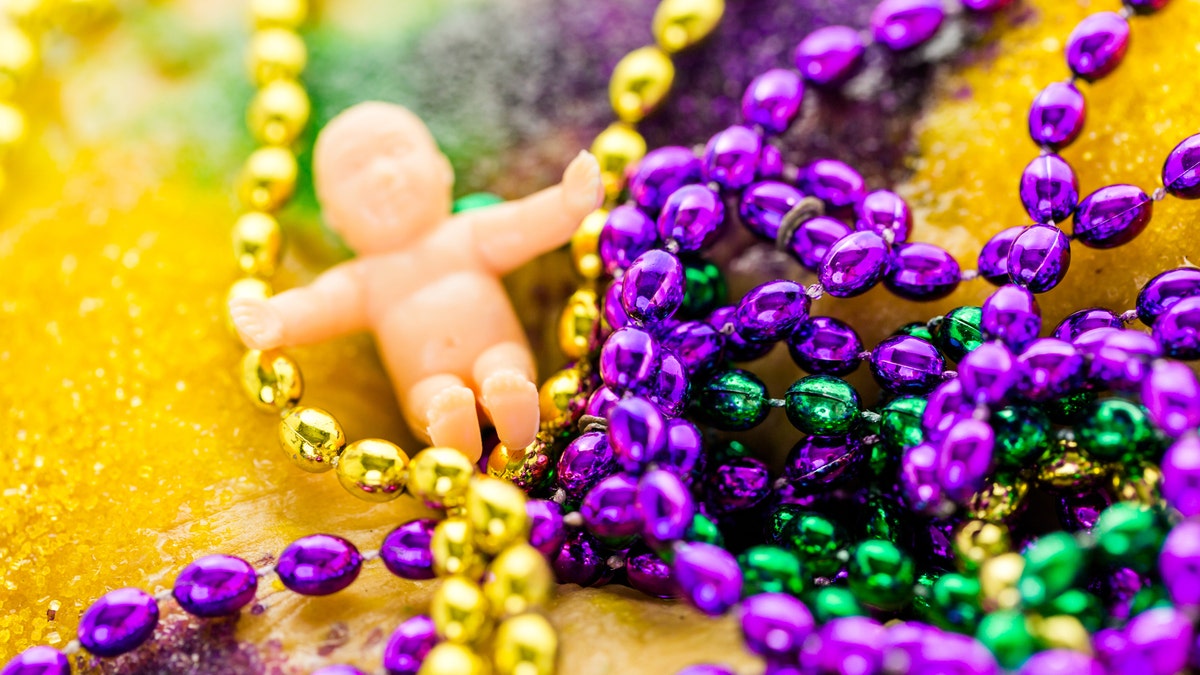All the food and decorations you need to celebrate Mardi Gras
Lifestyle expert Limor Suss shares the best activities and food for Fat Tuesday.
Mardi Gras will look a little bit different in New Orleans this year, as the Louisiana city has prohibited parades due to coronavirus concerns. Locals are still getting into the spirit of the holiday, however, with thousands of homes decorated as floats and festivities tweaked for safety's sake.
Festival season is about much more than throwing beads and eating king cake, however; read on for five little-known facts about the historic holiday.
Mardi Gras started in Mobile, Ala.
Mardi Gras, the celebration that marks the day before Lent and has long been associated with New Orleans, actually began in Mobile, Ala., in 1699. New Orleans was not founded until 1718.
NEW ORLEANS' PANDEMIC MARDI GRAS CELEBRATIONS INVOLVE SOCIALLY DISTANT EVENTS, KING CAKE

Did you know that Mardi Gras was banned in New Orleans until Louisiana became a state? (iStock)
Mardi Gras was banned in New Orleans until Louisiana became a state
From 1762, when the Spanish ruled the city, to 1800, and then between 1803 until 1837, after the U.S. took over, large celebrations and rituals associated with the carnival were banned. According to History.com, the first recorded Mardi Gras street parade in the Big Easy occurred in 1837.
Louisiana is the only state to declare Mardi Gras a legal holiday
While states around the country celebrate Fat Tuesday — with Alabama laying claim to the oldest festival in the country — Louisiana is the only one to have officially declared Mardi Gras a legal holiday.
FOLLOW US ON FACEBOOK FOR MORE FOX LIFESTYLE NEWS

A New Orleans bakery popularized hiding a porcelain baby inside the cake, reportedly as a nod to a similar practice dating back to 18th century France. (arinahabich/iStock)
Hiding a baby in king cake began in New Orleans
King cake, the slightly sweet cinnamon bread synonymous with Mardi Gras, usually comes with a trinket hidden inside. In the 1950s, a New Orleans bakery popularized hiding a porcelain baby inside the cake, a practice that reportedly traces back to 18th-century France, supposedly to represent Jesus, Eater reports. Today, the baby figurine — which can be made of plastic — is often hidden inside the king cake, and the person who ends up finding the baby in his/her slice is responsible for providing the king cake the next year.
CLICK HERE TO GET THE FOX NEWS APP
Public nudity is not allowed in NOLA
Though flashing for beads seems like a common Mardi Gras practice, public nudity is a no-no in New Orleans. Though, surprisingly, the city does allow public drinking — as long as your beverage is in a plastic cup.


